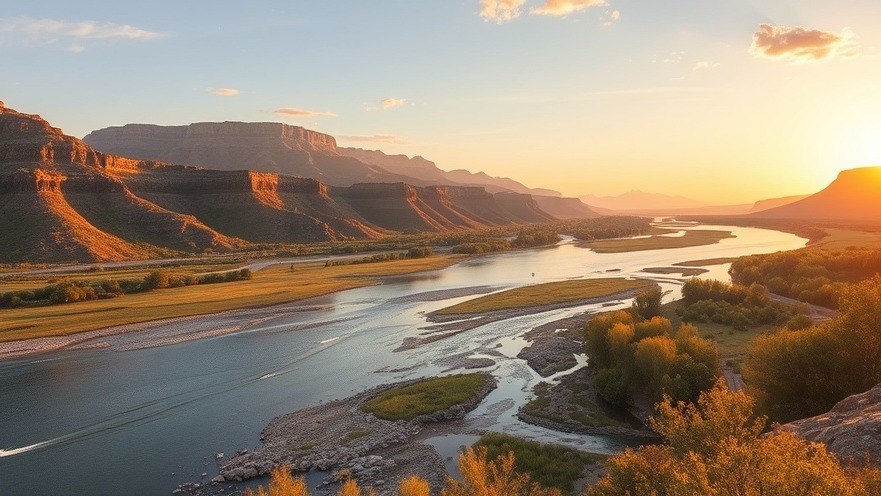
A Watershed Moment: Resolution in the Texas-New Mexico Water Dispute
In what has been a prolonged and complicated conflict, Texas and New Mexico have reached a settlement regarding water rights along the Rio Grande. Since 2013, this lawsuit has entwined the fates of cities, farmers, and communities dependent on the river's water, underscoring the complexities and challenges surrounding resource management in arid regions.
The Significance of the Settlement
The agreement addresses critical issues surrounding irrigation management, particularly for the El Paso Water Improvement District No. 1. With farmers in the El Paso area reliant on the Rio Grande, the settlement aims to improve water efficiency and conservation, ultimately ensuring a sustainable supply for agriculture and municipal needs.
Jay Ornelas, the district's general manager, expressed relief at the settlement, stating, “We are ecstatic to have reached a settlement and look forward to continuing delivering water to our farmers and the City of El Paso.” Such enthusiasm is mirrored across the region as stakeholders recognize the lasting impact of this settlement.
Contextualizing the Conflict
The Rio Grande Compact of 1938 serves as a historical backdrop to this lawsuit, regulating how Colorado, New Mexico, and Texas can utilize the river's water. Nevertheless, it primarily focuses on surface water, while modern hydrology has demonstrated the interdependence of aquifers and surface sources. This understanding has added layers of complexity, as groundwater extraction has been shown to reduce river flow significantly.
As drought conditions have intensified, farmers in Southern New Mexico have increasingly tapped into these aquifers, leading Texas to assert that this practice siphons off water owed to the state under the compact. Such disputes highlight the urgent need for collective solutions in resource management.
Anticipated Outcomes and Future Implications
As part of the settlement package, new formulas for water allocation have been established, along with commitments from New Mexico to address groundwater depletion. These measures aim to clarify water rights, paving the way for more effective and sustainable management practices.
Moreover, the decision is expected to influence future negotiations and agreements regarding water distribution among Western states. With growing populations and environmental pressures, cooperative governance becomes increasingly vital.
Understanding the Local Impact
This settlement will not only affect large-scale agriculture but also have important implications for local communities in areas such as El Paso and Southern New Mexico, which are vital to the region's cultural and economic fabric. As water resources come under increasing stress, community awareness surrounding the complexities of water rights and management will be essential.
Broader Perspectives: The Interplay of Resources
It's critical to consider the broader implications of this case, especially in the context of water rights disputes elsewhere. The Rio Grande case exemplifies how local resource management conflicts can resonate far beyond state lines, influencing agricultural practices, urban planning, and even international relationships with neighboring countries.
Local vs. Global Perspectives: As climate change exacerbates drought conditions, lessons learned from this settlement may become valuable resources for other regions grappling with similar challenges. This establishes a precedent for interdisciplinary collaboration in water management, stretching beyond legal adjudication to encompass environmental science, agricultural practices, and community advocacy.
Take Action: Stay Informed
As the details unfold from this landmark settlement, it is paramount for communities across Texas and New Mexico to stay informed and engaged with ongoing discussions surrounding water rights and resource management. The Rio Grande's future depends on collective action and a commitment to sustainable practices.
This pivotal agreement reflects a significant step toward curbing water conflicts, and its implications will likely resonate for generations to come.
 Add Element
Add Element  Add Row
Add Row 



Write A Comment